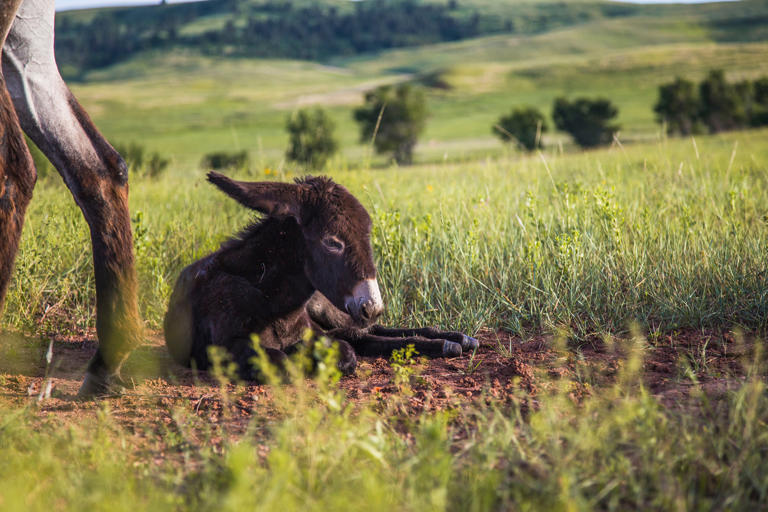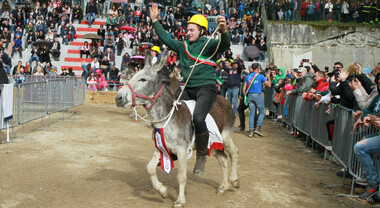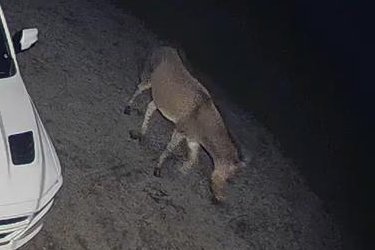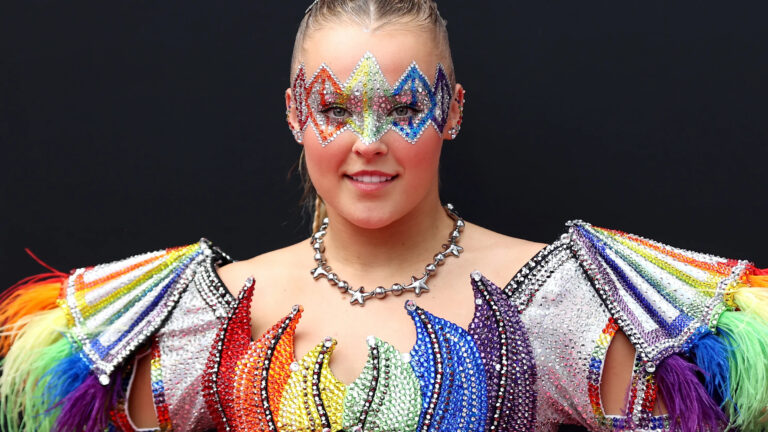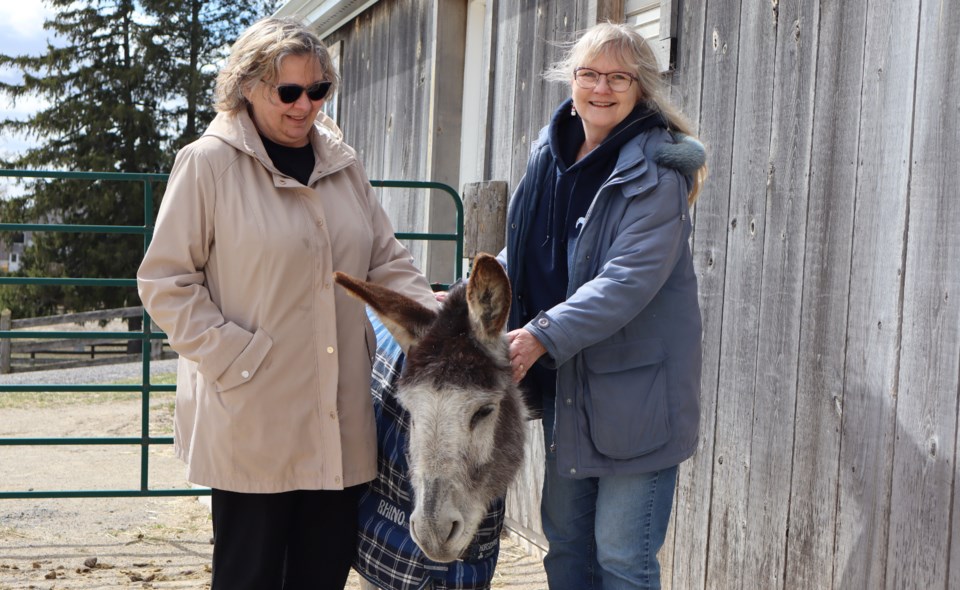
Donkey Sanctuary slams RONA ad as demeaning to donkeys
PUSLINCH – A local donkey sanctuary is speaking out against RONA’s new commercial and the impact of the harmful stereotypes it harnessed.
The executive director of the Donkey Sanctuary of Canada, Janine Holman couldn’t believe her eyes when she saw RONA’s new commercial, which follows several contractors complaining about “half-assed” construction jobs punctuated by a donkey missing its back half wandering around the city.
Saying it made her feel terrible; Holman’s main concern was how it proliferates a stereotype that is potentially harmful to donkeys.
“The animal in that commercial, it’s horrible. It’s a sad, pitiful creature and that’s not what donkeys are … so to have a commercial like that, it’s demeaning, it’s maligning and it’s deplorable,” said Holman. “It does not make you feel good and I cringe when I watch television every evening and see that commercial come on.”
RONA did not respond to a request for comment.
Communications lead Dale Gellatly agreed, saying the sanctuary chose to speak out about the ad because it’s “potentially damaging” to the animals they care about and they feel RONA should follow their slogan and do better.
The sanctuary is currently asking concerned viewers to contact their local RONAs and let them know they don’t agree with the commercial’s message.
“They’ve taken a caricature of an animal, made it disabled, and turned it into a joke,” said Gellatly. “So it’s inaccurate, it’s disrespectful and for us, that perception of donkeys as stupid is why some donkeys get here because people treat them based on that misconception.”
Holman used one of their donkeys, Apollo, as an example. Originally purchased as a livestock guardian, which is a common misconception about donkeys, Holman said Apollo was regularly beaten over the head with a shovel by his owners before he eventually arrived at the sanctuary because he wasn’t doing what the owner thought a donkey was supposed to do.
Home to over 100 donkeys and hybrids, approximately 30 per cent of the sanctuary are elderly donkeys.
“It’s an example of people expecting something of the animal and when the animal doesn’t pull through with that, they think the donkey is stupid, the donkey is useless, the donkey is half-assed,” said Holman.
“Every animal that comes here has a unique story and many of the stories follow those lines where someone has acquired the donkey, it isn’t not doing what is expected of them and then people have no use for them so they might end up neglecting them.”
While the sanctuary has received “a ton” of emails about the commercial since it first aired, Gellatly said she’s more concerned about the people who are laughing at the commercial and hopes to use the situation as an education opportunity for both RONA and viewers.
Holman said if RONA wanted to use the term half-ass, they could’ve featured a “true half-ass,” also known as a mule, and used the commercial in a more positive light.
Gellatly suggested that the commercial tell a different story about how hardworking donkeys are and how humans can learn from them.
“Language is powerful,” said Gellatly. “When people use the expression half-assed in a negative way, it tells people who haven’t met these beautiful creatures that it’s okay to abuse or treat them poorly.”
Isabel Buckmaster is the Local Journalism Initiative reporter for GuelphToday. LJI is a federally-funded program.
